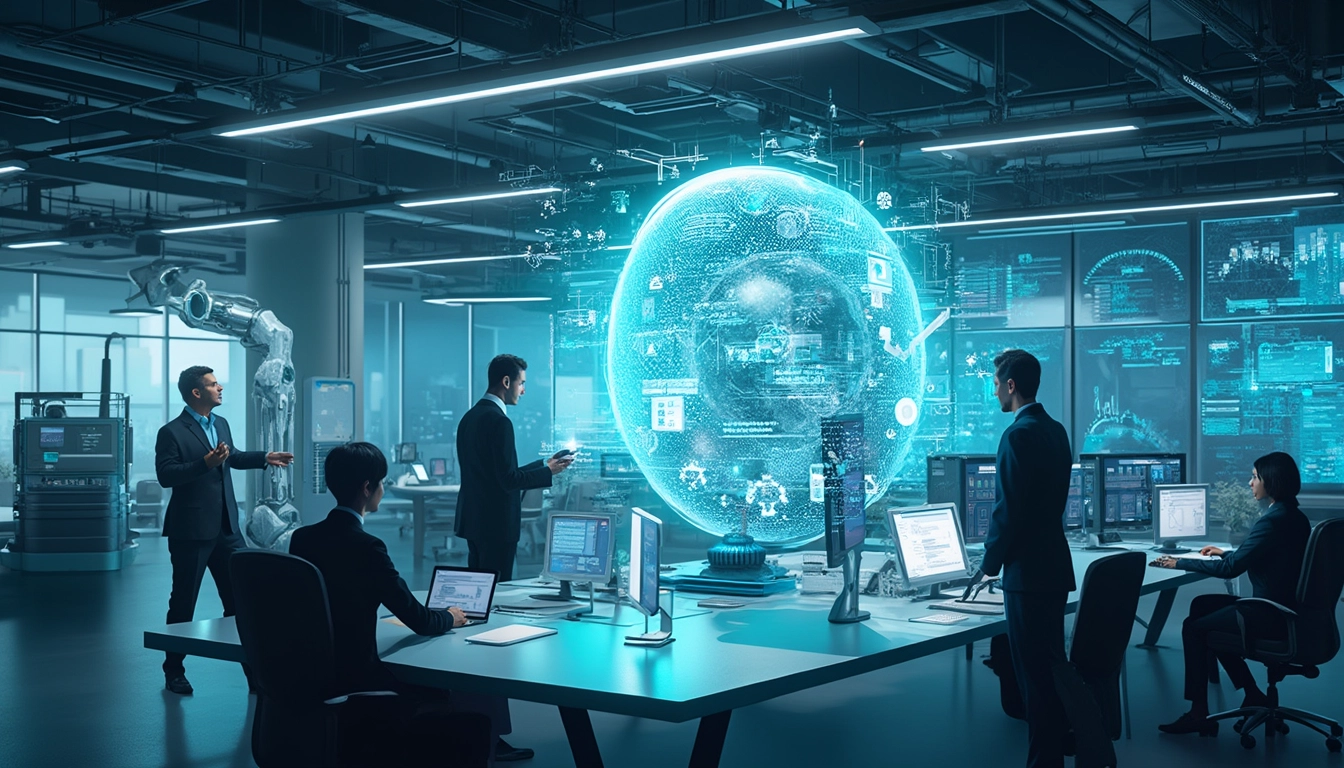
Emerging Technology Trends Reshape Enterprise Computing Landscape Through 2025
The technology landscape is rapidly transforming with groundbreaking advancements in artificial intelligence, quantum computing, and spatial computing leading the charge into 2025. Gartner’s strategic technology trends highlight the shift toward autonomous decision-making systems and enhanced cybersecurity measures, with projections indicating significant adoption of these technologies across industries.
Key Takeaways:
- Agentic AI will handle 15% of daily work decisions by 2028
- Enterprise adoption of anti-disinformation technology will reach 50% by 2028
- The spatial computing market is projected to grow to $1.7 trillion by 2033
- Hybrid computing solutions will integrate multiple processing technologies for enhanced performance
- Sustainable technology initiatives will focus on energy-efficient computing systems
The Rise of Agentic AI and Autonomous Systems
The emergence of Agentic AI marks a significant shift in how organizations handle decision-making processes. These advanced systems can independently plan and execute actions to achieve user-defined objectives. AI-powered devices and systems are becoming increasingly sophisticated, with predictions showing they’ll manage complex technical projects and streamline customer experiences by 2028.
Advanced Computing Architecture and Infrastructure
Edge Computing and hybrid solutions are reshaping the computational landscape. The integration of CPUs, GPUs, and quantum systems creates a powerful ecosystem for tackling complex problems. Cloud infrastructure services are expected to see remarkable growth, with CIPS projected at 24.2% and IaaS at 24.8% from 2024 to 2025.

Cybersecurity and Disinformation Defense
As digital threats evolve, organizations are strengthening their defense mechanisms against disinformation and cyber attacks. The implementation of post-quantum cryptography by 2029 will protect sensitive data from quantum computing threats. Organizations utilizing AI governance platforms are expected to achieve 30% higher customer trust ratings and 25% better regulatory compliance scores by 2028.
Spatial Computing and Immersive Experiences
Spatial Computing is revolutionizing how we interact with digital content. By 2028, 20% of the global population will regularly engage with immersive, geolocated content. This technology, combined with advanced monitoring systems, is creating unprecedented opportunities for human-computer interaction.
Human Enhancement and Robotics
The integration of polyfunctional robots and human enhancement technologies is reshaping the workforce. By 2030, 80% of humans will interact with smart robots daily, while 30% of knowledge workers will rely on brain-machine interfaces for enhanced cognitive abilities. These advancements, along with other technological innovations, are creating a new paradigm for human-machine collaboration.
Sustainable Technology Implementation
Energy efficiency is becoming a central focus in technology development. Sustainable technology initiatives are driving innovations in computing architecture, with organizations prioritizing solutions that minimize energy consumption and carbon footprint. The integration of low-cost tags and sensors enables large-scale tracking while maintaining energy efficiency.


